The WWII codebreaker who still won't give secrets away
- Published
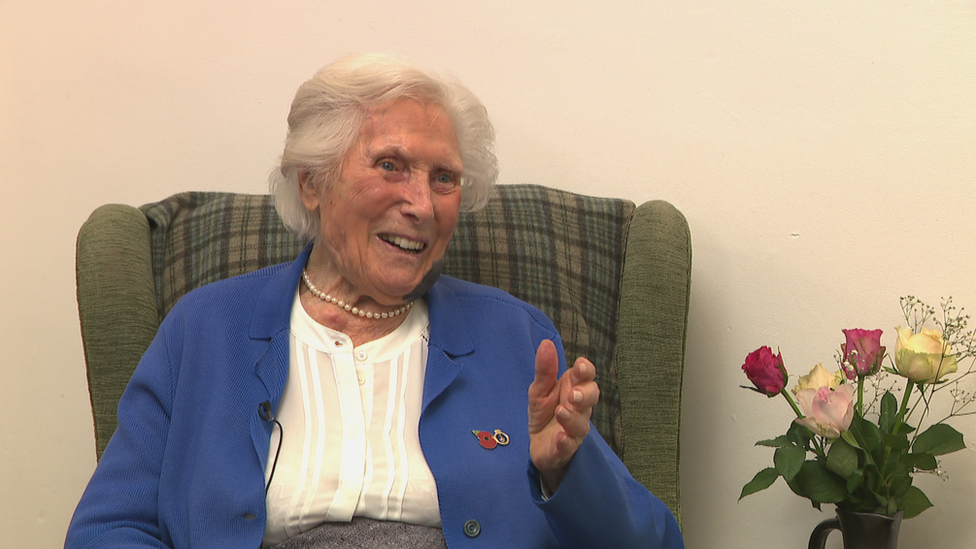
Marjorie Lamb enjoyed the covert nature of her work during World War Two
As an officer in the Women's Royal Naval Service Marjorie Lamb learned to decode messages in the Highlands of Scotland before being posted to Egypt.
But despite the passage of time Ms Lamb, 102, vowed she would still never give any secrets away.
She told BBC Scotland: "I don't think I would. It's just one of those things."
The great grandmother also recalled the excitement of the early days of World War Two, when she didn't even have a proper uniform.
Ms Lamb, who lives in East Renfrewshire, was in her late teens when the conflict broke out in 1939.
She said: "I think in the beginning we thought it was nothing to do with us.
"We were all youngsters, about 17 or 18, and, ok, it was hard on everybody else but we were alright."
The mother-of-one then told how she started to see women in uniform and decided to join the Wrens.
She joked: "I thought the outfit was better than any of the ones I had."
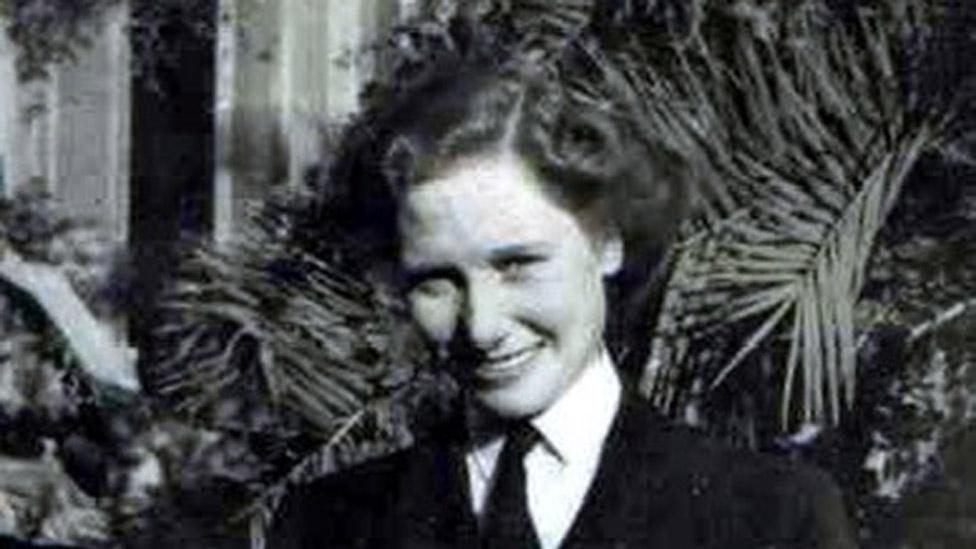
Ms Lamb, who is originally from Epsom, Surrey, said: "It was quite exciting really but I did not have a uniform.
"There were not any on the go and it was just a case of doing up whatever you had got to make it look as if you were in the Navy.
"It was just any ordinary skirt. There were not enough uniforms to go round at all.
"So we would wear the plainest one we had, which they confirmed was ok."
In the early years of the war she was told she had been promoted to officer and would be sent to the Highlands for training.
She joked: "To begin with I had never heard of Invergordon having come from the south of England."
But as chance would have it the navy officer who was sent to meet her at the train station, Jimmy Lamb, would later become her husband.
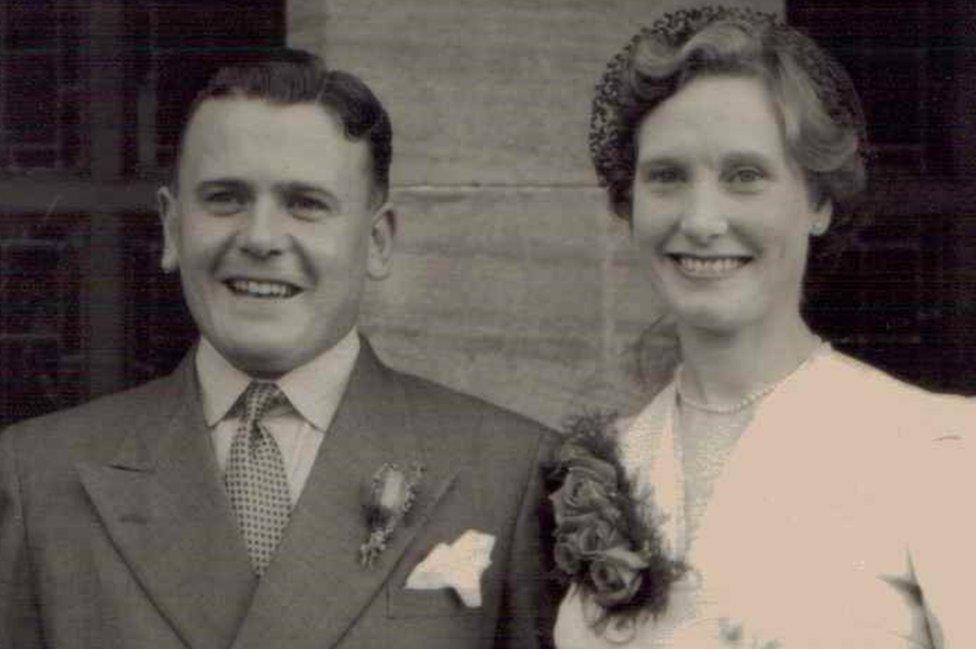
Ms Lamb met her husband, Jimmy, after he was sent to escort her from her train after it arrived in the Highlands
In the Highlands Ms Lamb was also introduced to coding.
She recalled: "You were made an officer because you could do these things ably and properly and we were all as keen as mustard.
"We loved our jobs."
Explaining the nature of her work, she said: "If we knew that such and such a ship was leaving such and such a point, having got that through a message which had been slipped through, then we had to decipher that and pass that on.
"You had to keep it to yourself.
"The minute you got your cypher officer's hat you were a different person."
Ms Lamb also recalled the officers stationed there were like a family and described the atmosphere at the time as "absolutely marvellous".
When her training was complete she was told her next post would be in Alexandria, Egypt, which provided facilities for the British war effort.
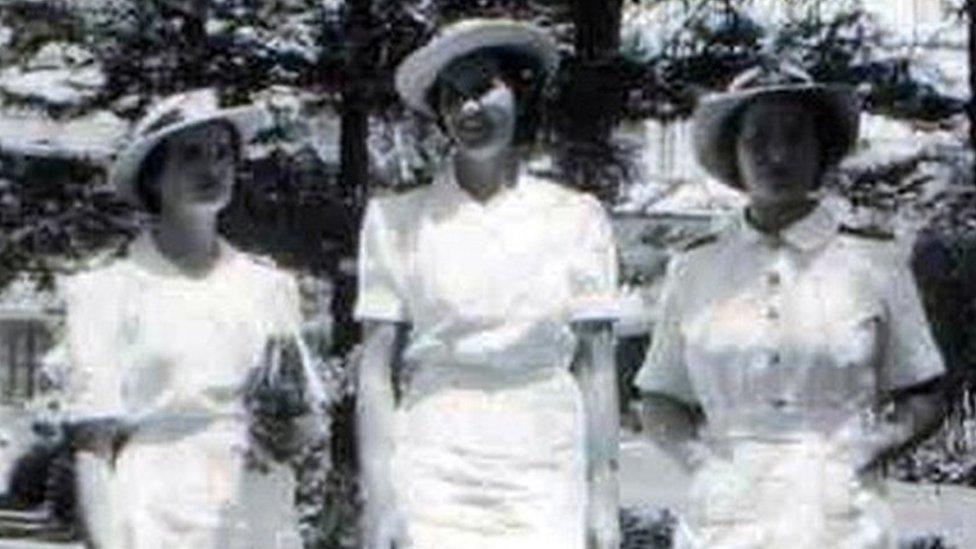
Ms Lamb (right) during her time in Alexandria, Egypt
She said: "I was a cypher officer and if you were a cypher officer you could be sent anywhere.
"It was wonderful but I don't think I knew anybody who would ever speak about what they were doing.
"And if a new person came into the cypher office they would soon know they couldn't do that.
"It was soon hammered into them."
Ms Lamb enjoyed the covert nature of her work but said she was under no illusions about the sensitivity of the material she had access to.
She added: "You had it drummed into you that it was very secret.
"It was secret to our country and we were taught very well.
"We were so desperate to keep everything to ourselves and not let the side down.
"It did really teach everybody what it is to keep your mouth shut."

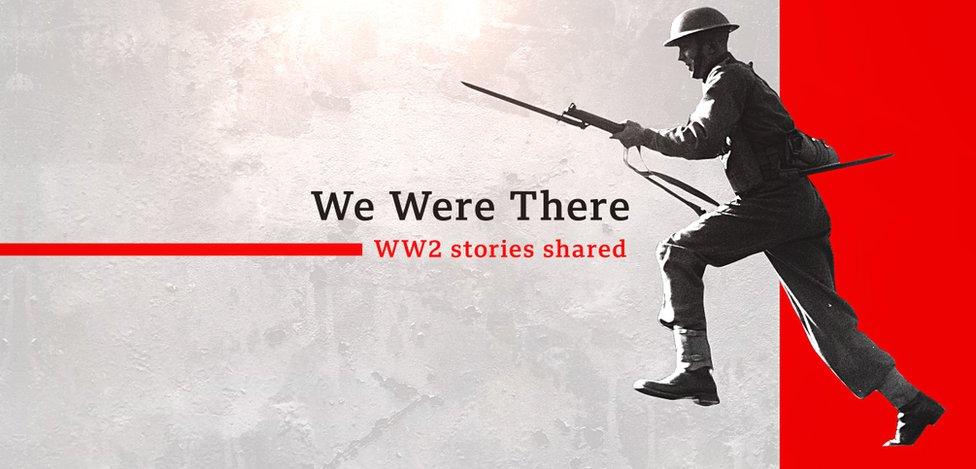
Ahead of the 80th anniversary of the end of World War Two, in 2025, the BBC is trying to gather as many first-hand accounts from surviving veterans as possible, to preserve them for future generations.
Working with a number of partners, including the Normandy Memorial Trust and the Royal British Legion, the BBC has already spoken to many men and women who served during the War - you can watch their testimonies here.


Do you or someone you know have memories of World War Two? Please share these experiences by emailing haveyoursay@bbc.co.uk, external.
Some of the stories collected may be shared with our partners and used on BBC News platforms.
Please include a contact number if willing to speak to a BBC News journalist.
You can also contact BBC News in the following ways:
WhatsApp: +44 7756 165803
Tweet: @BBC_HaveYourSay, external
Please read the terms and conditions and privacy policy
If you are reading this page but cannot see the form, visit the BBC website's mobile version to submit a question or comment, or email HaveYourSay@bbc.co.uk, external.
Please include your name, age and location with any submission.